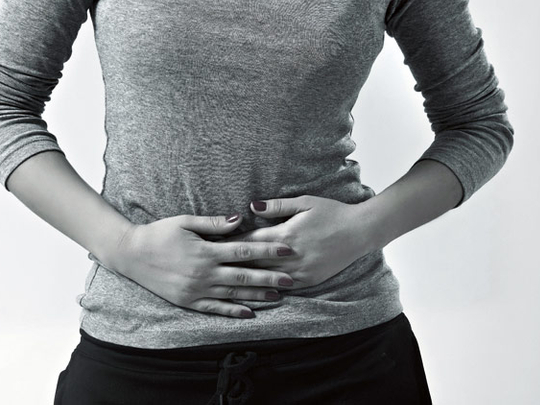
Abu Dhabi: Without adequate measures, the rate of incidence of cervical cancer in the UAE is set to double to 180 new cases by 2030, a leading health official announced in the capital on Monday.
A new programme therefore aims to provide vaccinations for Emirati girls between 18 and 26 years of age, said Dr Jalaa Taher, head of cancer control and prevention at the Health Authority Abu Dhabi (HAAD). The programme is intended to reach out to girls who may not have received or completed their vaccination doses earlier, and will begin from June 1.
“Since 2008, thousands of female pupils enrolled in Grade 11 at Abu Dhabi emirate schools have been provided the vaccine free of charge. However, a number of young girls have not been covered, and they will be the ones who will benefit from this catch-up initiative,” Dr Jalaa said.
“This is one of the most painful cancers that I have come across. Moreover, those who are afflicted are usually diagnosed in the later stages, such as Stage 2 and 3, and survival rates at this point are already down to 25 per cent,” she added.
Cervical cancer is known to be the second most common cancer in women worldwide, and the third leading cause of cancer deaths. In the UAE, it affects seven out of every 100,000 people.
The cancer is caused by a group of 100 different viruses that are transmitted sexually, known collectively as the Human Papilloma Virus (HPV). While 80 per cent of women acquire the virus during their lifetime, the virus does not develop into cancer in the majority of them.
“In some women, the HPV does end up causing cervical cancer. Nearly 80 per cent of these cases arise from two particular strains of HPV, and the vaccination provides protection against them,” Dr Jalaa explained.
In 2011, 61 new cases of cervical cancer were diagnosed in Abu Dhabi, and its incidence is continuing to rise.
The vaccination is usually administered in three doses over a six-month period. As part of the new programme, 23 health-care facilities in Abu Dhabi will provide the vaccines for the target group of Emirati females. This will be done during premarital screening, women’s health and cancer screenings and university pre-admission screenings.
“It is easy to administer the vaccines in female schoolchildren, and the uptake has reached 90 per cent of the target group in schools. It will however be harder to reach older women who are the target of the new programme,” Dr Jalaa said.
“We are not yet reaching out to expatriate women within the 18-26 year group as many of them tend to relocate after school,” she added.
While the vaccination protects young girls who are not sexually active, the HAAD recommends screenings, known as pap smears, for those over the age of 25, and for those who are married. This screening needs to be undertaken every three to five years.
Each vaccination dose currently costs between Dh350 and Dh550, while the pap smears range from Dh200 to Dh400, the HAAD official said earlier. Both are covered for Emiratis by Thiqa insurance.












